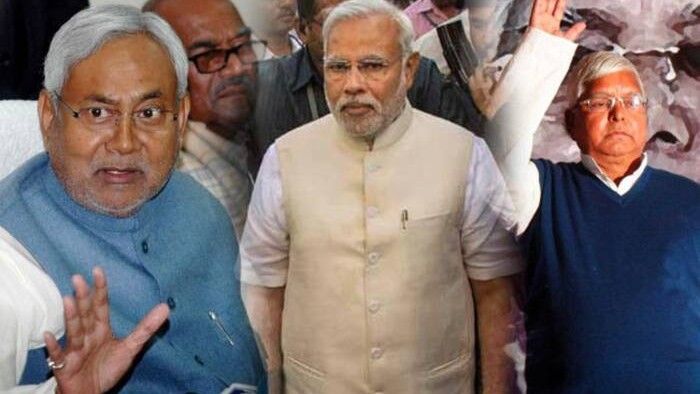
Mind games have begun in Bihar ahead of the upcoming state assembly elections, still nine months away. Chief Minister Nitish Kumar is at the centre of this tussle between the two largest parties in the state—the Bharatiya Janata Party (BJP) and the Rashtriya Janata Dal (RJD). Both want Kumar on their side when elections are due in October-November this year.
Interestingly, this battle seems disconnected from ground reality and appears more like a publicity gimmick to send an early message to voters about their political strength.
When elections were last held in 2020, there was little to differentiate the BJP and the RJD. The RJD, with 75 seats in the 243-member assembly, emerged as the single largest party, while BJP’s surge in the eastern state stopped at 74.
Nitish Kumar holds the record as the longest-serving chief minister of Bihar, with over 18 years in office. Except for a brief nine-month break when he quit and handed over the reins to Jitan Ram Manjhi following the 2014 Lok Sabha polls debacle, Kumar has been in charge since 2005.
Though his popularity has been consistently declining, largely due to his habit of switching between the BJP and RJD, Kumar has remained the focal point of Bihar politics. Compared to 2015, Kumar's Janata Dal-United (JD-U) lost 28 seats, dropping from 71 to just 43 in 2020. Yet, he remains in a pivotal position, as neither the BJP nor RJD can form the government without his support. However, his support comes with one non-negotiable price—the chief minister's chair, nothing less.
Kumar's track record of disregarding the popular mandate and switching sides has been well-documented. In 2020, he fought elections as a BJP ally, formed a government, then switched to the RJD in August 2022, only to return to BJP again in January 2024. Despite his repeated assertions that this would be his final move, those familiar with him know not to take his words at face value.
The debate over his alignment for the 2025 elections was reignited when his old friend Lalu Prasad Yadav, the RJD president, casually remarked that the doors were open for Kumar's return to the anti-BJP alliance, the Mahagathbandhan. While Yadav's son, Tejashwi, denied the remark, claiming the doors were not closed for his uncle, it sent the BJP into a state of alert.
The BJP quickly affirmed that the ruling NDA would contest the Bihar polls under Kumar's leadership, and Kumar assured he was staying put, but it is believed that Lalu Prasad Yadav has come to Kumar's aid at a critical juncture. A poor outcome in 2025 could signal the end of Kumar's long political career.
Lalu Prasad Yadav, Nitish Kumar, and the late Sushil Kumar Modi were close friends since their days at Patna University, where they led the Students Union. They played a key role in Jayaprakash Narayan's Sampoorna Kranti movement, which led to the imposition of the Internal Emergency in 1975. Though their political paths diverged, their personal bond remained intact.
It remains unclear whether Lalu Prasad Yadav’s statement regarding Kumar was a casual remark or a political masterstroke, but it has undoubtedly put the BJP in a tricky spot. Despite the BJP’s growing influence in Bihar, they cannot afford to contest alone. Voters demonstrated in 2015 that their preferences differ between parliamentary and state elections. Despite winning 31 of Bihar’s 40 Lok Sabha seats in 2014, the BJP finished a poor third in the 2015 assembly elections, trailing behind RJD and JD-U, who contested together under the Mahagathbandhan.
Given Kumar’s declining popularity, the BJP might typically consider projecting its own chief ministerial candidate, while offering Kumar a significant role at the centre. However, Lalu Prasad Yadav has effectively removed that option, forcing the BJP to retain Kumar, despite the risk of alienating Bihar’s electorate, who are no longer enamoured with Kumar's caste-based politics. Now, they have a new option in Prashant Kishor.
The Prashant Kishor-led Jan Suraaj party, launched in October last year, did poorly in the recent assembly bypolls, but should not be written off. Having worked with both BJP and JD-U, Kishor offers an alternative vision to Bihar’s youth, focusing on education, jobs, and development, in contrast to the caste-based politics of Yadav and Kumar.
Indeed, Bihar’s political scene has entered an uncertain phase, where Nitish Kumar remains a key figure—at least for now.
Ajay Jha is a senior journalist, author and political commentator